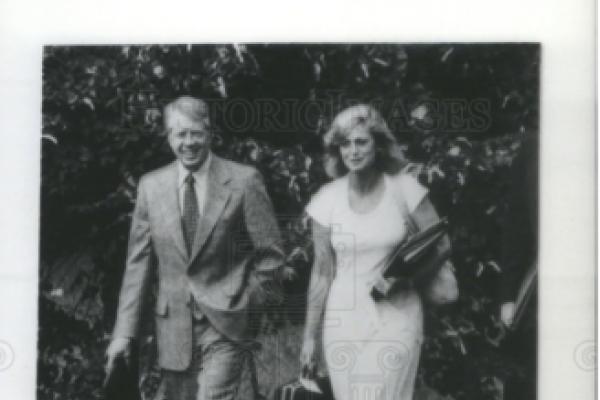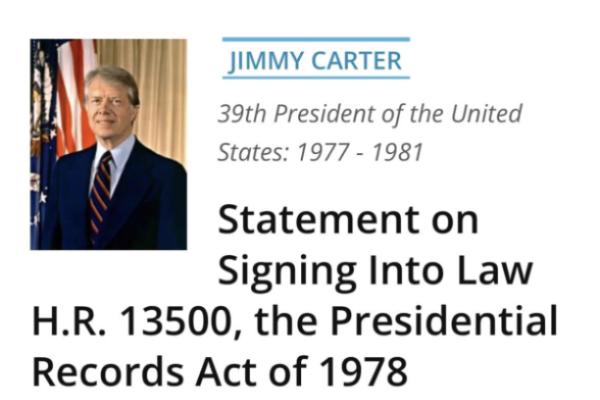
Our thanks to The Kentucky Lantern, and Deborah Yetter, for calling public attention to violations of the open records law that commenced in the earliest days of Daniel Cameron's administration, persist today, and bode ill for a Cameron gubernatorial administration.
https://kentuckylantern.com/2023/08/10/court-fight-raises-doubts-about-…
Yetter, a widely respected investigative reporter for The Courier Journal for 38 years, knows more than a little about the open records law and it's importance in holding public officials to account. It was Yetter -- along with Lexington Herald Leader reporter Bill Estep and Todd County Standard editor Ryan Craig -- who doggedly pursued child fatality and near fatality records maintained by the Cabinet for Health and Family Services. In protracted open records battles, they secured the public's right to know that the Cabinet was concealing its failure to protect these children by avoiding disclosure of the records at all costs.
https://caselaw.findlaw.com/court/ky-court-of-appeals/1726554.html
https://law.justia.com/cases/kentucky/court-of-appeals/2015/2012-ca-000…
Yetter's article verifies Daniel Cameron's continuing disdain for, and noncompliance with, Kentucky's open government laws -- the open meetings law has also suffered multiple insults during his tenure as attorney general.
This is not a great surprise to open records and meeting advocates.
Cameron's office is staffed by the same attorneys who advised former Governor Matt Bevin and unsuccessfully opposed access to public records in multiple cases during the Bevin administration. Recall, for example, the fight to avoid disclosure of executive pardon records, the actuarial analysis of Bevin's public pension plan, and Braidy Industries investors. Those attorneys simply packed up their anti-transparency playbook and walked across the hall of their first floor Capitol offices to their new offices in the Cameron administration. Nothing in those few short steps from one constitutional officer's office to another altered their contempt for the public's right to know.
This is the same attorney general who brought you:
• public officials' discussions of public business on private devices and accounts are not public records and not accessible under the open records law;
https://www.ag.ky.gov/Resources/orom/2021/21-ORD-127.pdf
Rejected in https://dcogc.org/wp-content/uploads/2022/03/Kentucky-opinion-on-text-m…
https://amp.kentucky.com/news/politics-government/article257710593.html
http://apps.courts.ky.gov/Appeals/Calendar/August2023.pdf
• conditions for conducting closed session -- including announcing the statutory exception authorizing the closed session/general nature of the business to be discussed and prohibiting final action in closed session -- are permissive and a public agency's failure to observe them does not violate the open meetings law;
https://www.ag.ky.gov/Resources/orom/2022/22-OMD-187.pdf
Rejected in https://drive.google.com/file/u/0/d/1kHzUyuhEjoAerC5EY6FCpcxcVb_ic9ub/v…
https://www.pmg-ky1.com/oldham_era/oc-circuit-judge-crosby-reverses-att…
https://appellatepublic.kycourts.net/case/b52ea23de97eeb000f118f7d303bc…
• emailed discussions of public business by a quorum of the members of a public agency are not "meetings" and therefore not subject to the open meetings law -- a recent (and fatal) interpretation of the open meetings law that has yet to be challenged in the courts.
https://www.ag.ky.gov/Resources/orom/2023-OROM/2023/23-OMD-103.pdf
https://www.ag.ky.gov/Resources/orom/2023-OROM/2023/23-OMD-112.pdf
https://kyopengov.org/blog/cameron-declares-open-meetings-law-does-not-…
Yetter focuses on the open records battle between American Oversight and the Office of Attorney General Daniel Cameron that has dragged on in the Franklin Circuit Court for three years due to Cameron's obfuscations and delays.
She writes:
"When American Oversight first requested documents about the task force from Cameron, the attorney general’s office responded by claiming it had identified 14 items but refused to release all but one — a single page of a meeting agenda.
"American Oversight then appealed to the attorney general and received the opinion upholding the refusal. In Kentucky, attorney general open records opinions have the force of law unless appealed to circuit court.
https://www.ag.ky.gov/Resources/orom/2020/20-ORD-147.pdf
"So the group filed a lawsuit challenging the opinion, and in July 2022 Shepherd ruled in favor of American Oversight’s right to the records and also directed the attorney general to search for additional records.
https://www.documentcloud.org/documents/22087464-20220714-opinion-and-o…
“'This court is doubtful that a mere 14 records in possession of the (attorney general) are responsive to the plaintiffs open records request,' Shepherd said in the order.
"After searching again, Cameron’s office turned over 395 pages of records, American Oversight said in a court filing. Of those, 85 were new and 310 pages were records previously identified but withheld.
"The newly-discovered records consisted of calendar invitations, emails and records related to absentee ballots, the filing said.
"Whether any more material remains is the subject of the ongoing dispute.
"Shepherd on July 18 ordered American Oversight to question representatives of Cameron’s office in depositions for purposes of 'fact finding.'
"The two sides then agreed to ask for additional time to resolve the dispute, which Shepherd granted.
"Meanwhile, Shepherd’s ruling of July 2022 establishes two important limits on the attorney general’s power to withhold records, Bensenhaver said.
"Cameron’s office, in initially refusing to release all but one page of the task force records, cited two exceptions:
"One, the records withheld might relate to a criminal investigation and therefore were exempt from disclosure; and two, items such as emails about meetings, schedules and agendas were preliminary and therefore exempt.
"Shepherd rejected both claims, saying that neither appeared to apply to a public task force created to monitor elections that was announced through a press release.
"'The public already knows that the task force exists,' his order said.
"According to Shepherd’s order, 'no exceptions apply,' Bensenhaver said."
To summarize Yetter's analysis, in response to American Oversight's 2020 open records request, Daniel Cameron:
• casually dismissed his duties as a public official overseeing a public task force and custodian of its public records;
• failed to conduct an adequate search for records responsive to that request;
• willfully hid the records behind inapplicable open records exceptions;
• brushed aside American Oversight's objections on appeal to his office, issuing an open records decision in which his nonmerit staff found no violation;
• continued to stonewall American Oversight when it took the case to court;
• obfuscated for two more years;
• received a strongly worded adverse ruling from the court; and
• even then, continued to delay, prompting the court to order depositions to get to the bottom of this longstanding dispute.
There are few who would disagree with preeminent First Amendment and open government advocate, Jon Fleischaker, whom Yetter quotes:
"Anyone who suggests [Daniel Cameron] is a proponent of transparency is just wrong. He is an opponent of transparency."
For more, see https://kentuckylantern.com/2023/08/10/court-fight-raises-doubts-about-…



